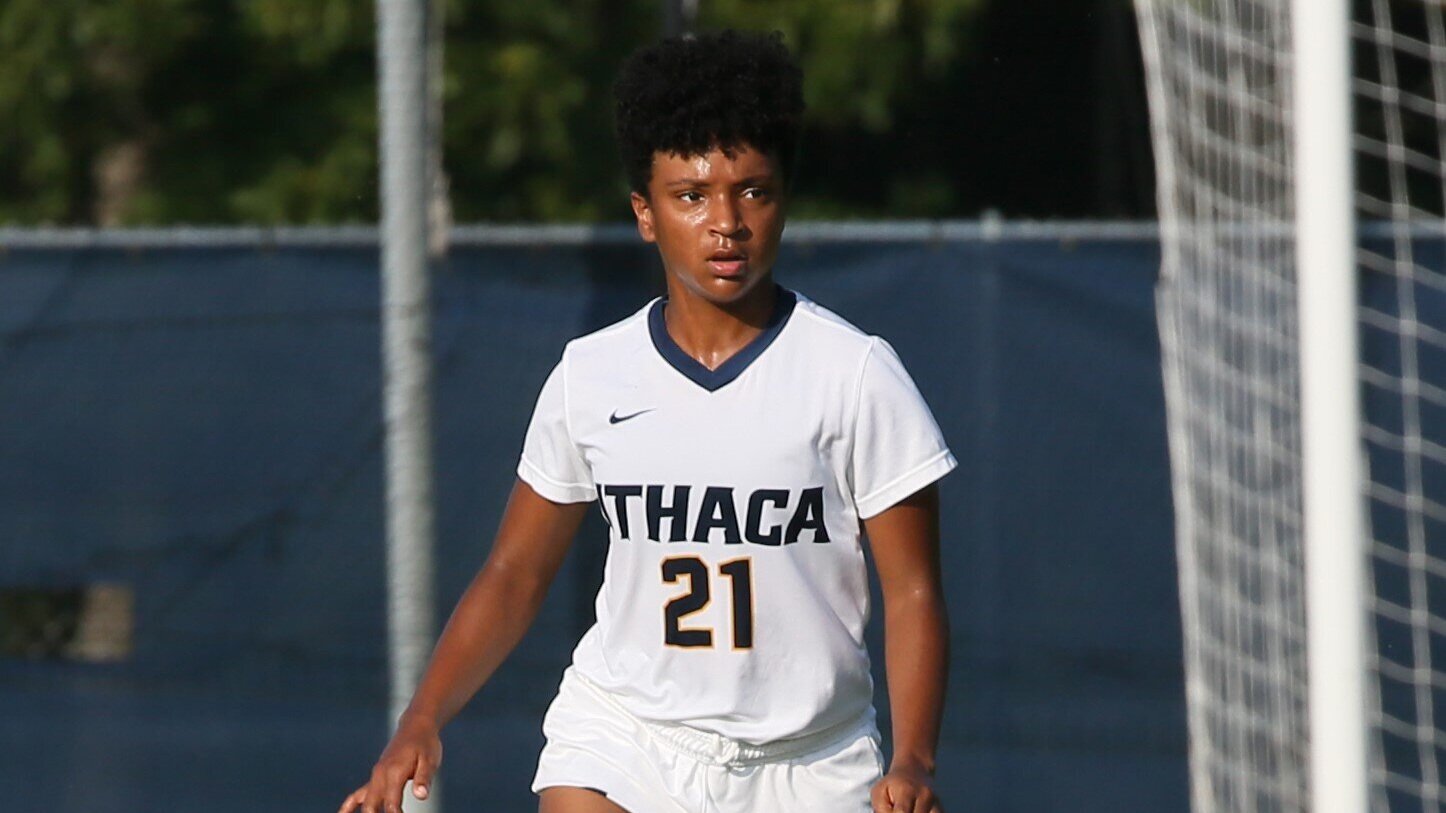Devon Morris – Ithaca Soccer
“I transferred, my junior year of high school to a small white private school and didn’t really have any friends because I was new. Everyone knew everyone and had grown up with each other so I felt like I was an outsider. I really wanted to do something different. One day, I was kind of joking around with one of my teachers, who was a football coach at the time, and he was really, really cool. I was like, “Yeah football’s not doing too hot, why don’t I come kick for y’all?” And he was like, ‘Yeah, you can go try it out and see what you got.’”
“I would go to school at 7:30am, if we didn’t have a 6am lift. Football practice would start at 3:15pm, then I would change to my soccer stuff at 5:45pm and drive 45 minutes soccer practice. If traffic was lighter, I would stop at the McDonald’s on the way and like grab a couple of chicken nuggets to keep me going. And then soccer practice would end around 8pm and I would drive 30 minutes home to finish homework, and be in bed by 10:30pm. My senior year was challenging, but I knew soccer had to be a part of it if I wanted to play in college.”
“Playing football, it felt like I was by myself the majority of the time, especially because I had to go in the girls locker room to change by myself. If we would travel on the bus, I would have to change and sit in my pads on the bus the whole way or be the very last one to change in the boys locker room. It was tricky but I stuck it out and eventually got the starting kicking spot. Though it was hard, I definitely made some good relationships. My relationships with my coaches were xcellent. Actually, my favorite football coach, Coach Hill recently passed away from COVID. He was a pivotal mentor in my life and he trained me every summer for college soccer.”
“When I got to college the culture shock was tricky because I didn’t know I was going through culture shock. I learned to commit to doing better, kind of taking control of my current situation and figuring out how I was going to make my sophomore year better for myself, versus just quitting. I had to get over minuscule things, daily microaggressions, and the daily realization that I wasn’t from there and I wasn’t like everybody else. It made things difficult.”
“Being a Black woman in athletics has given me tough skin, for sure. Being a student-athlete is already challenging in itself, but adding in those daily microaggressions, along with the constant self-doubt that I won’t fit in or be understood makes things hard. When someone yells the N word during a pregame song, I’m the only one who’s affected by it, and everyone else has the privilege to not be fazed by it. But speaking up right before a game isn’t a good time for productive conversation. It’s also not my job to call out people every time it happens. I had to ask myself, ‘If not me, then who’s going to facilitate the change?’”
“I did the majority of my leading through example. Sports can continue to promote change by amplifying efforts to diversify the athletes and the coaching staffs in teen sports. Also, the importance of committing to one goal that remains at the forefront should be a priority of every team, especially soccer . When we consider how the whole is affected by a decision before the self, we can also help facilitate change in and outside of athletics.”
“Your experience is what you make it. There will be days when it feels like the world is against you, and nothing will go your way. How you react to what’s happening to you is the difference between feeling stuck at rock bottom, and understanding that the only place you can go now is up.”

